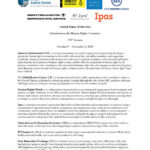
On October 17-18, 2023, the United Nations Human Rights Committee reviews U.S. compliance with the ICCPR, including the impact of Dobbs on its human rights obligations. Global Justice Center, State Innovation Exchange, Amnesty International, Ipas, Human Rights Watch, RH Impact, and Obstetricians for Reproductive Justice submitted this report to the Committee that details the human rights violations caused by Dobbs in the U.S.
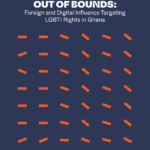
In 2021, the “Promotion of Proper Human Sexual Rights and Ghanaian Family Values Bill” was introduced in the Ghanaian Parliament. The bill, if passed, would criminalize LGBTI people and behavior, as well as those who support their rights, and even those who report on lesbian, gay, bisexual, transgender, and intersex (LGBTI) issues. While there has been significant national and international media coverage of the bill, what is less understood is who is driving promotion of the bill, and the accompanying harmful public debate. This report seeks to fill that knowledge gap, identifying who is behind the external anti-LGBTI influence, detailing connections between Ghanaian leaders and conservative foreign groups, and showing how anti-LGBTI rhetoric, and social and other media traffic, are being shaped and driven by these interests. As of March 2023, the anti-LGBTI bill is still pending in Ghanaian parliament. With this report, we provide recommendations to continue exposing the origins of anti-LGBTI hatred in Ghana and guidance on supporting LGBTI rights and reclaiming the narrative from homophobic politicians and other personalities to demonstrate that reactionary narratives against LGBTI rights are not universal in Ghana.
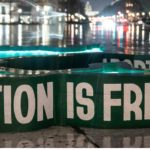
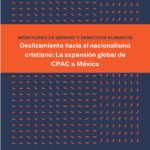
La Conferencia de Acción Política Conservadora (CPAC), con sede en Estados Unidos, un evento conocido como nexo para el activismo de derecha, realizará su primer foro en México.
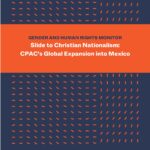
The U.S.-based Conservative Political Action Conference (CPAC), an event well known as a nexus for right-wing activism, is holding its first forum in Mexico. This brief—written for both opposition researchers and anyone interested in the global anti-rights movement—provides an overview of CPAC’s background and international expansion, with a focus on how CPAC is collaborating with far-right actors in Mexico to advance its Christian nationalist agenda.
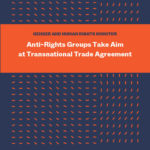
Anti-rights groups and movements are expanding their work into new and seemingly unlikely spaces to impose regressive, fundamentalist Christian views on human rights, family, gender, and sexuality. This briefing paper outlines the activities of three anti-rights groups based in the Global North leading a transnational attack on an economic agreement between the European Union (EU) and its country partners in Africa, the Caribbean and Pacific (ACP) – known as the ACP-EU Partnership Agreement (the Agreement). Christian Council International, Family Watch International, and the Political Network for Values are taking issue with EU efforts to include protective language on human rights, and specifically sexual and reproductive health and rights within the Agreement. While it is unlikely that they will succeed in altogether derailing the Agreement renewal process, the investment of attention, time, and money warrants closer inspection by human rights activists and the media, as well as EU and ACP negotiators, parliamentarians, and other stakeholders.
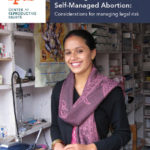
This publication, created by Ipas and the Center for Reproductive Rights, is designed to help individuals and groups consider the potential impact of abortion regulations and offer tools to help assess legal risk when supporting access to self-managed abortion.
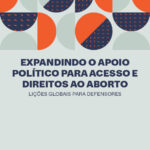

On October 17-18, 2023, the United Nations Human Rights Committee reviews U.S. compliance with the ICCPR, including the impact of Dobbs on its human rights obligations. Global Justice Center, State Innovation Exchange, Amnesty International, Ipas, Human Rights Watch, RH Impact, and Obstetricians for Reproductive Justice submitted this report to the Committee that details the human rights violations caused by Dobbs in the U.S.

Advocating for abortion access is unlike advocacy on any other global health-care issue. This publication shares insights and lessons learned by Ipas staff and our partners around the world through decades of advocacy work to expand abortion access. The content outlines key obstacles and opportunities that advocates encounter, plus strategies for overcoming common challenges.

On October 17-18, 2023, the United Nations Human Rights Committee reviews U.S. compliance with the ICCPR, including the impact of Dobbs on its human rights obligations. Global Justice Center, State Innovation Exchange, Amnesty International, Ipas, Human Rights Watch, RH Impact, and Obstetricians for Reproductive Justice submitted this report to the Committee that details the human rights violations caused by Dobbs in the U.S.
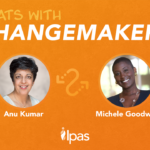
A thought-provoking conversation between Ipas President and CEO Anu Kumar and award-winning author, advocate, professor and social commentator Michele Goodwin.
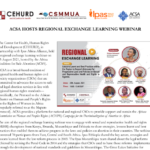
The Center for Health, Human Rights and Development (CEHURD), in partnership with Ipas Africa Alliance, held a regional exchange learning webinar on 25 August 2021, hosted by the Africa Coalition for Safe Abortion (ACSA). ACSA is a broad-based coalition of regional health and human rights civil society organizations that are committed to advocate for access to safe and legal abortion services in line with the Maputo Protocol. This one-page fact sheet outlines the discussion and actions taken during the learning exchange.
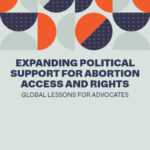
Advocating for abortion access is unlike advocacy on any other global health-care issue. This publication shares insights and lessons learned by Ipas staff and our partners around the world through decades of advocacy work to expand abortion access. The content outlines key obstacles and opportunities that advocates encounter, plus strategies for overcoming common challenges.
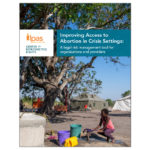
This tool is designed to help program planners and organizations understand abortion law and manage legal risk when providing or supporting access to abortion for people who are displaced by crisis. It provides general guidance and can be used online or in-person and with program teams, field teams, program managers and other decision-makers. It can also be incorporated in risk- and security-assessment processes.
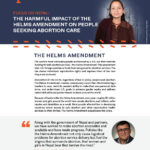
The Helms amendment is a law barring U.S. foreign assistance from being used for abortion services. This fact sheet describes the negative impact of the Helms amendment in Nepal. The country liberalized its abortion law in 2002 and the right to safe motherhood and reproductive health was guaranteed by the 2015 Constitution. In 2018 the Right to Safe Motherhood and Reproductive Health Act further ensured that women and girls in Nepal have the right to access safe, legal abortion free of charge at public health facilities. Yet due in great part to U.S. funding restrictions like the Helms Amendment, Nepal’s reproductive health care provision is fragmented and needlessly inefficient, putting the most burden on women and girls seeking abortion care.
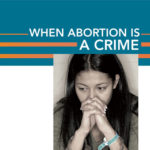
This two-page fact sheet is adapted from a 2013 Ipas report investigating the impact of criminal abortion laws on women, their families and health-care providers in three South American countries—Bolivia, Brazil and Argentina.
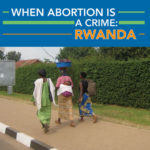
Rwanda reformed its abortion law in 2012, but legal barriers and cultural and religious stigma make it nearly impossible for women to get a safe, legal abortion. Women with unplanned or unwanted pregnancies resort to unsafe and illegal abortions—and Rwandan police unjustly harass, arrest, prosecute and imprison hundreds of women and girls on abortion or infanticide-related charges each year. This report, by Ipas and Great Lakes Initiative for Human Rights and Development, shares findings from interviews with women, judges, legal defense lawyers, and police officers, and calls on the Rwandan government to take steps to address this ongoing human rights violation.
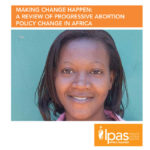
An overview of progressive abortion policy changes and trends in Africa, primarily between 2010-2016. It outlines strategies in regional policy work by Ipas and partners and points to examples of positive policy change, such as national law reform, updated standards and guidelines, commitments by policymakers, and the integration of safe abortion into regional strategies and actions plans on sexual and reproductive health and rights.
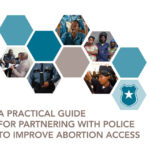
This guide is a resource for advocates, trainers, project managers and technical advisors who design programs and workshops to engage police on abortion issues. Drawing on the work of Ipas and other organizations, it offers practical strategies for partnering with police to address stigmatized issues and promote public health, with a specific focus on abortion. It can be used both in settings where abortion is legal and accessible and in settings where it is highly restricted.

